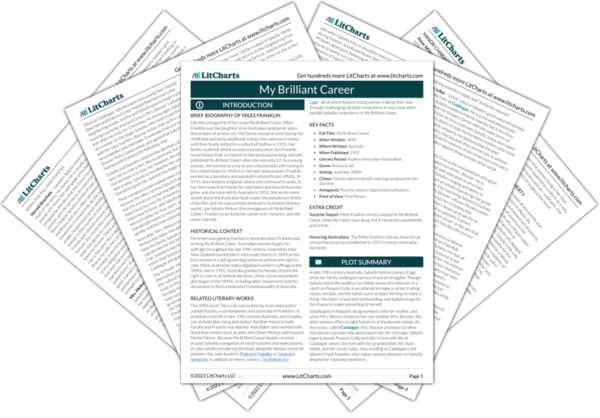Mr. Blackshaw’s pursuit of Jane, despite her repeated rejections, represents men’s refusal to accept that a woman has declined their advances. Jane provides Sybylla with a model of womanhood that contrasts the aristocratic Mrs. Melvyn. The model of womanhood that centers morality and submissiveness has historically been tied to the upper and middle classes, so Jane’s low social status allows her to reject Blackshaw more boldly than Sybylla would be expected to. Jane still acts within a patriarchal system, however, since she is offended that Possum Gully forces its women to undertake “outside work”––that is, work outside the feminine domestic sphere.
